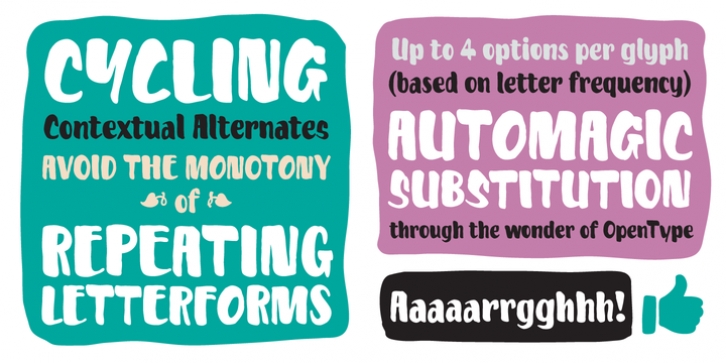Kake was designed by Dave Rowland and published by Schizotype. Kake contains 1 style.
Kake‘s upper case letters are inspired by a hand-painted sign outside a temple in Ubud, Bali. The rest of the font is made to fit the style. The hand-made aesthetic is increased by the implementation of contextual alternates, which automatically swap glyphs to alternate forms to avoid the monotony of repeating letters. The amount of variations for each glyph is dependent on letter frequency in English; there are more a’s and e’s than q’s and j’s. Even with only two variations of some glyphs, the programming makes sure that no two matching glyphs are ever next to eachother, and for the most part they will rarely be even two letters apart. This all makes for type that looks like it isn’t type. The glyphs bounce and subtly change weight with willful abandon.
Some of the letters on that original sign are somewhat quirky. If you’re not a fan you can engage stylistic alternates or stylistic sets to change the C, G, S, Y, c, s and y glyphs to a less idiosyncratic form. These variations still have variations themselves, so with contextual alternates on, they will look as random as all the rest.
Case sensitive forms and automatic fractions are included, as are 98 ornaments, ranging from the useful to the (let’s just say) esoteric. These can be accessed from the glyph palette. I know you’ve probably never realized you need an anchor, a fuel pump, skull and crossbones and chess symbols in the same font before, but that doesn’t mean you don’t!
Kake is full on display typography. It’s legible for small blocks of copy but don’t go setting essays in it. Unless you really want to… in which case, go for it.

